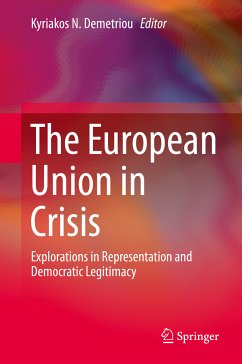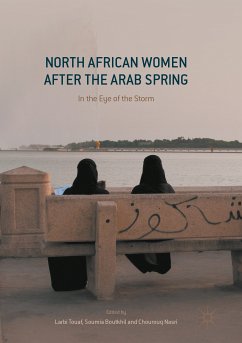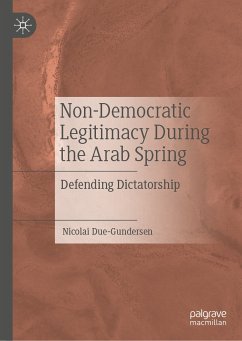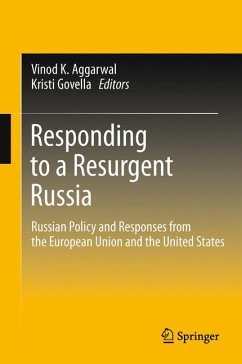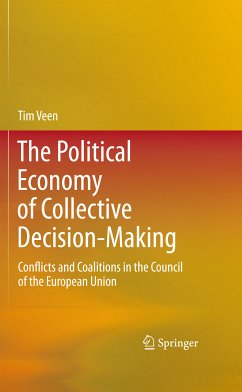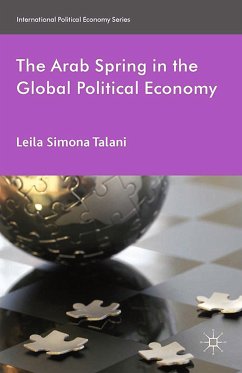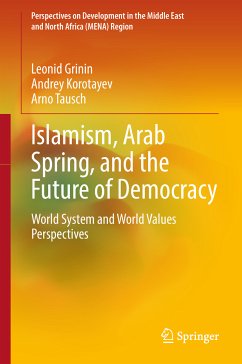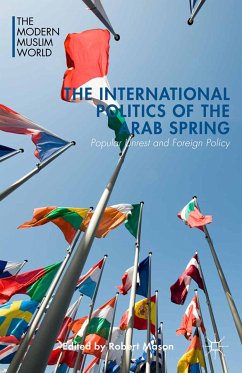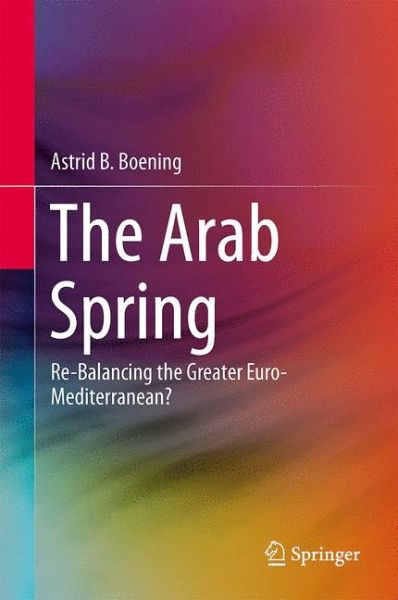
The Arab Spring (eBook, PDF)
Re-Balancing the Greater Euro-Mediterranean?
Versandkostenfrei!
Sofort per Download lieferbar
40,95 €
inkl. MwSt.
Weitere Ausgaben:

PAYBACK Punkte
20 °P sammeln!
Beginning in 2010, there has been a consolidating cooperation among existing powers in the Euro-Mediterranean in face of the rapid de-stabilization of the Arab region. This fact alone accelerated the hesitant responses by the EU towards emerging hegemons, particularly Russia and China, who in-turn applied traditional mechanisms of increasing regional economic influence to bolster their political influence, but with the difference that a normative influence is missing, in contrast to the EU's and US' influence, which is strongly centered on universal norms pertaining to political, economic and ...
Beginning in 2010, there has been a consolidating cooperation among existing powers in the Euro-Mediterranean in face of the rapid de-stabilization of the Arab region. This fact alone accelerated the hesitant responses by the EU towards emerging hegemons, particularly Russia and China, who in-turn applied traditional mechanisms of increasing regional economic influence to bolster their political influence, but with the difference that a normative influence is missing, in contrast to the EU's and US' influence, which is strongly centered on universal norms pertaining to political, economic and social-cultural norms. This book examines the Arab Spring not only from its intra but also inter-regional geo-political and strategic implications by analyzing the Euro-Mediterranean region following the onset of the Arab Spring. It aims to connect the broader economic and political strands of power shifts that have taken place since the Arab Spring, making it of interests to political scientists and policy-makers concerned with the Mediterranean and Euro-Arab relations.
Dieser Download kann aus rechtlichen Gründen nur mit Rechnungsadresse in A, B, BG, CY, CZ, D, DK, EW, E, FIN, F, GR, HR, H, IRL, I, LT, L, LR, M, NL, PL, P, R, S, SLO, SK ausgeliefert werden.




